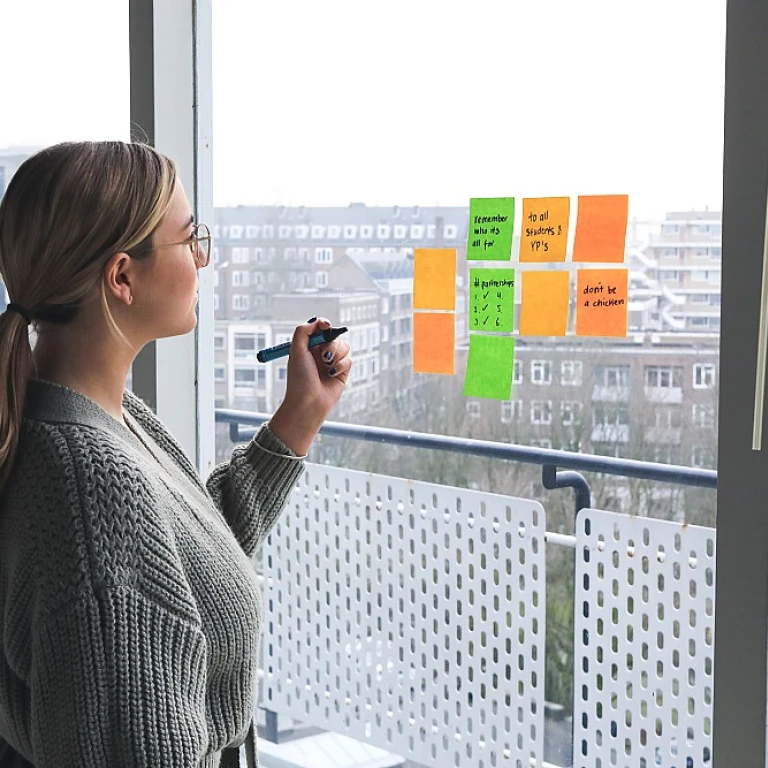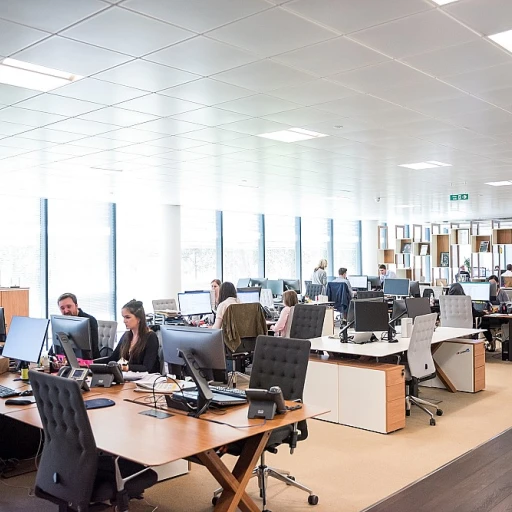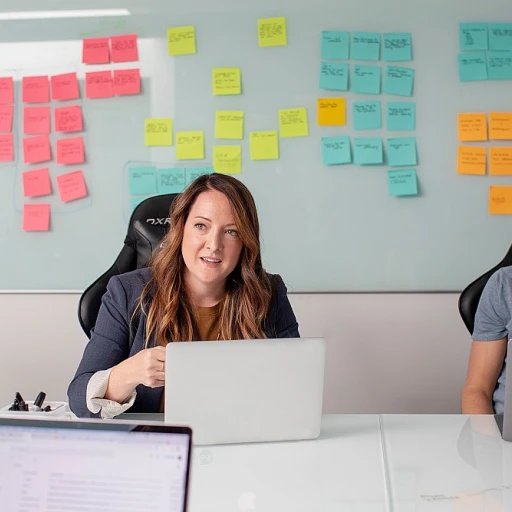Understanding the Unique Challenges in Collections
Navigating the Complex Landscape of Collections
Understanding the intricacies of retaining employees in collections requires a keen awareness of the sector's distinctive challenges. The collections industry can be particularly demanding, with high-pressure environments that often lead to elevated turnover rates. Employees in this field might face unique stressors, such as dealing with difficult customer interactions and maintaining high performance under pressure.
These hurdles can adversely affect job satisfaction and, consequently, employee engagement. Organizations looking to improve retention must first acknowledge these industry-specific challenges and craft tailored strategies for employee engagement in this context. It's crucial to create an environment where employees feel valued and supported, laying a robust foundation for a lasting sense of belonging.
Part of addressing these challenges involves offering professional development opportunities and ensuring a positive work culture. Employees who feel they have opportunities to grow and develop their skills within the company are more likely to remain committed long term. Crafting tailored strategies tailored to the unique needs of your team is essential to fostering a work environment that supports and retains employees effectively. More insights can be found here.
To truly excel in retention strategies in collections, feedback mechanisms should be in place to continuously assess the well-being and satisfaction of your workforce. This ensures that potential issues can be addressed promptly, helping to lower turnover rates and boost employee satisfaction. By weaving these elements into the fabric of your company culture, organizations can navigate the challenges of the collections industry successfully.
Crafting a Supportive Work Environment
Creating a Positive Atmosphere
Building a supportive work environment is essential for employee engagement and retention in collections. A positive atmosphere not only reduces turnover rates but also enhances job satisfaction and work culture. A positive work environment makes employees feel valued and part of a cohesive team.Providing Constructive Feedback
Constructive feedback helps employees grow and improves the overall work environment. Regular feedback sessions facilitate open communication, allowing employees to voice their concerns and achievements. This practice contributes to employee satisfaction and retention by reassuring employees that their contributions are acknowledged and appreciated.Encouraging Work-Life Balance
Promoting a good work-life balance is crucial in reducing stress and burnout, leading to increased employee retention. Organizations can implement strategies such as offering flexible work hours and remote work options. Such arrangements provide employees with the freedom to manage their personal and professional lives more effectively.Facilitating Professional Growth
Organizations can enhance employee engagement and retention through professional growth opportunities. By investing in development opportunities, employees feel they have room to advance their careers within the company. This sense of progression boosts employee motivation and commitment, resulting in a more dedicated workforce. For further insights on unlocking employee potential, consider exploring the role of a skills development facilitator.Training and Development Opportunities
Elevating Skills through Continuous Learning
Investing in training and development opportunities not only empowers employees but also fosters a sense of belonging and loyalty within the organization. By offering continuous learning programs, companies can enhance both employee engagement and retention, ultimately reducing turnover rates. In collections, where challenges can be particularly demanding, equipping employees with the right skills and knowledge is pivotal.
To ensure effective professional development, companies should design training programs that align with organizational goals and address specific skill gaps. This targeted approach boosts job satisfaction and allows employees to feel valued as they contribute to the team's success.
- Skill-specific Training: Implement programs tailored to the unique demands of collections, such as negotiation and communication skills.
- Mentorship Opportunities: Facilitate mentorship programs to provide guidance and feedback, enhancing the work environment.
- Flexible Learning Options: Offer both in-person and remote learning options to accommodate different preferences and promote a positive work life balance.
Building a culture of continuous learning not only supports long term success but also fosters a strong sense of community within the company. By embracing structured programs and opportunities, organizations can significantly enhance employee satisfaction and overall engagement retention. For further insights into team development, consider exploring Tuckman's stages of group development and their impact on employee engagement strategies.
Implementing Flexible Work Arrangements
Embracing Flexibility for Enhanced Engagement
In today's fast-paced work environment, offering flexible work arrangements has become a crucial strategy for retaining employees, particularly in the collections sector. This approach not only helps in reducing turnover rates but also significantly boosts employee engagement and satisfaction.
Flexible work options can include remote work, flexible hours, or even compressed work weeks. These arrangements allow employees to balance their professional responsibilities with personal commitments, leading to a more positive work-life balance. When employees feel they have control over their schedules, they are more likely to feel valued and engaged, contributing to a more cohesive work culture.
Moreover, flexible work arrangements can be a powerful retention strategy. They demonstrate that the organization trusts its employees to manage their time effectively, which in turn fosters a sense of loyalty and commitment. This approach aligns well with the broader goal of creating a supportive work environment, as discussed in previous sections.
Implementing flexible work arrangements requires careful planning and clear communication. It's essential for companies to set clear expectations and provide the necessary tools and support to ensure that employees can perform their jobs effectively, regardless of their location. This strategy not only aids in employee retention but also enhances overall job satisfaction and engagement.
- Remote work options can reduce commute stress and increase productivity.
- Flexible hours allow employees to work during their most productive times.
- Compressed work weeks can offer longer periods of rest and recovery.
By integrating flexible work arrangements, organizations can create a more dynamic and responsive work culture. This not only helps in retaining top talent but also strengthens the company's position as a forward-thinking employer in the competitive collections industry.
Recognizing and Rewarding Performance
Acknowledging Excellence for Motivation
In the realm of collections, recognizing and rewarding high performance plays a crucial role in driving employee engagement and retention. Employees need to feel valued and appreciated for their contributions to the organization, particularly in an environment where the pressures of collections can sometimes overshadow positive achievements. To minimize turnover rates and increase job satisfaction, consider the following strategies:- Incorporate Regular Feedback: Feedback should not solely focus on areas of improvement. Acknowledge the achievements of your team, whether it's meeting monthly goals or handling a challenging collection call with professionalism. Positive reinforcement will enhance employee satisfaction and motivation.
- Develop a Rewards Program: Implement a structured program that rewards achievements in alignment with company objectives. Rewards can vary from bonuses and gift cards to extra time off or flexible work arrangements. Ensure that the program is transparent, fair, and consistently applied across the organization.
- Celebrate Milestones: Recognize anniversaries, project completions, or other significant contributions. Public acknowledgment during team meetings or through company-wide communications can foster a sense of belonging and ensure employees feel their hard work is noticed.
Building a Strong Company Culture
Fostering a Cohesive and Inclusive Work Culture
Creating a robust work culture is essential for organizations operating in collections. With the inherent challenges faced in this sector, it's crucial that employees feel integrated and supported to enhance job satisfaction and retention. An engaging work environment should embrace the following facets:- Open Communication: Encourage open dialogue across all levels in the company. Regular feedback channels help employees feel valued and respected. This improves overall engagement and satisfaction, reducing turnover rates.
- Shared Values and Goals: Aligning personal and professional aspirations within the company culture bolsters a sense of belonging. Employees who see their individual roles as part of a larger, meaningful mission demonstrate higher levels of engagement and commitment.
- Inclusivity and Diversity Initiatives: Promote diversity and inclusion in the workplace. A varied working environment encourages different perspectives and ideas, enriching team dynamics and enhancing problem-solving capabilities.
- Community and Team Building: Foster a strong sense of community among employees through regular team-building activities. This builds lasting relationships and strengthens the bonds within the team, contributing to a positive work environment.
- Recognition Programs: Implement recognition programs to acknowledge employees' hard work and achievements. Recognizing performance not only boosts morale but also instills a sense of pride and motivation in employees.












